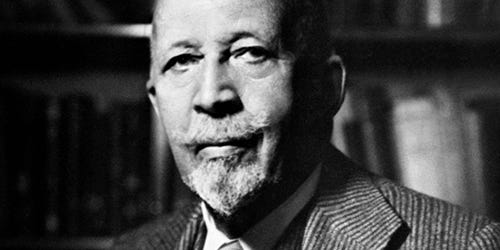Throughout history, we’ve been captivated by stories of brilliant minds who left an indelible mark on the world. These individuals, Often Hailed As Geniuses, possessed extraordinary talents and insights that pushed the boundaries of human knowledge and creativity. Yet, beneath the surface of their remarkable achievements often lay a complex tapestry of struggles and internal turmoil.
It’s fascinating to consider the relationship between genius and mental health. Could there be a connection between These Seemingly Disparate concepts? This article delves into the lives of eleven historical figures widely recognized for their brilliance and explores the possibility that they may have experienced Various Mental Health Conditions. By examining their actions, writings, and personal accounts through the lens of modern diagnostic criteria, we aim to shed light on the intricate interplay between genius and mental well-being.
Understanding these historical figures’ potential struggles can provide valuable insights into the human experience. It reminds us that even the most brilliant minds are not immune to internal challenges and that recognizing and addressing mental health concerns is crucial for everyone, regardless of their accomplishments. This exploration seeks to humanize these Iconic Figures, revealing the complexities of their lives and fostering a deeper appreciation for Their Enduring Legacies.
Geniuses and Mental Health: A Historical Perspective
Historically, mental health conditions were often misunderstood and stigmatized. People experiencing these challenges were frequently Labeled As Eccentric, insane, or possessed, rather than being recognized as individuals struggling with treatable illnesses. This lack of understanding led to limited support systems and often resulted in these individuals being ostracized or Even Institutionalized.
Despite these challenges, glimpses into the mental states of some historical figures can be found Through Their Writings, Personal Accounts, and observations made by contemporaries. While definitive diagnoses are impossible without Access To Modern Medical Evaluations, analyzing these historical records allows us to speculate about the potential experiences of Troubled Geniuses. It’s important to remember that attributing mental health conditions to historical figures should be done with sensitivity and awareness of the limitations of our knowledge.
Examining these historical perspectives can help us understand how societal attitudes towards mental health have evolved over time. It also highlights the enduring human experience of grappling with internal struggles, regardless of external achievements or recognition.
Exploring Possible Disorders in Eleven Historical Figures
This article delves into the lives of eleven historical figures renowned for Their Genius, exploring possible mental health conditions they may have experienced based on available historical accounts and modern diagnostic criteria. These individuals represent a diverse range of fields, from science and literature to art and politics, showcasing the universality of human experience, even among those who achieved extraordinary feats.
Each figure will be examined individually, Considering Their Actions, writings, Personal Relationships, and any documented struggles they faced. It’s important to emphasize that these are speculative analyses based on historical evidence, Not Definitive Diagnoses. However, by exploring these possibilities, we can gain a deeper understanding of the complexities of genius and shed light on how mental health may have influenced the creative brilliance and personal lives of these remarkable individuals.
This exploration aims to humanize these Iconic Figures, revealing the multifaceted nature of their existence and fostering empathy for their struggles. It also serves as a reminder that mental health challenges can affect anyone, regardless of their accomplishments or societal standing.
 Vatican Artifacts: Unveiling Secrets from Centuries Past
Vatican Artifacts: Unveiling Secrets from Centuries PastThe Spectrum of Genius and its Psychological Underpinnings
The concept of Genius is often romanticized as a purely intellectual phenomenon, but the reality is far more complex. Genius encompasses a wide spectrum of talents and abilities, from artistic expression to scientific innovation, and it’s intricately linked with psychological traits and Cognitive Processes.
While there’s no single profile that defines a genius, certain personality characteristics and thought patterns are often associated with exceptional creativity and intellectual prowess. These can include intense focus, a thirst for knowledge, Unconventional Thinking, and a willingness to challenge established norms. It’s important to recognize that these traits exist on a continuum, and not everyone who possesses them is necessarily a “genius” in the traditional sense.
Exploring the spectrum of genius and its psychological underpinnings allows us to appreciate the multifaceted nature of human intelligence and creativity. It also helps us understand that genius often arises from a complex interplay of genetic predispositions, Environmental Influences, and personal experiences.
Understanding the Link Between Creativity and Mental Illness
The relationship between creativity and mental illness is a complex and often Debated Topic. While there’s no conclusive evidence to suggest that mental illness is a prerequisite for Artistic Brilliance, numerous studies have pointed towards a possible correlation between certain mental health conditions and increased creative output.
Some theories propose that individuals with mental illnesses may possess heightened sensitivity To Stimuli, Unusual Thought Patterns, and a greater capacity for emotional expression, all of which can contribute to innovative thinking and artistic breakthroughs. It’s important to note that this doesn’t imply that mental illness is beneficial or desirable; rather, it suggests that the same neurological mechanisms that can lead to challenges may also fuel extraordinary creativity in Some Individuals.
Exploring this link between creativity and mental illness requires sensitivity and nuance. It’s crucial to avoid romanticizing mental health conditions or suggesting that they are a necessary ingredient for artistic success. Instead, we should strive to understand the complexities of human experience and recognize that both mental well-being and creative expression are valuable aspects of the human journey.
Beyond Diagnosis: The Enduring Legacy of Troubled Minds
While exploring potential mental health conditions in historical figures can offer valuable insights into their lives and work, it’s crucial to remember that diagnoses are inherently limited by the constraints of time and available information. Ultimately, these individuals should be remembered for Their Enduring legacies—Their Contributions To Art, science, literature, and society as a whole.
Focusing solely on potential diagnoses risks overshadowing the brilliance and complexity of These Individuals. Their struggles, Whatever They May Have Been, were part of a larger narrative that shaped their unique perspectives and Fueled Their Creative Output. By acknowledging both their triumphs and challenges, we can gain a more holistic understanding of their lives and appreciate the multifaceted nature of human genius.
The legacy of Troubled Minds extends beyond diagnoses and into the realm of inspiration. These individuals remind us that creativity often flourishes in the face of adversity, and that even those who struggled with mental health could achieve extraordinary things. Their stories serve as a testament to the resilience of the human spirit and the enduring power of art and innovation.










